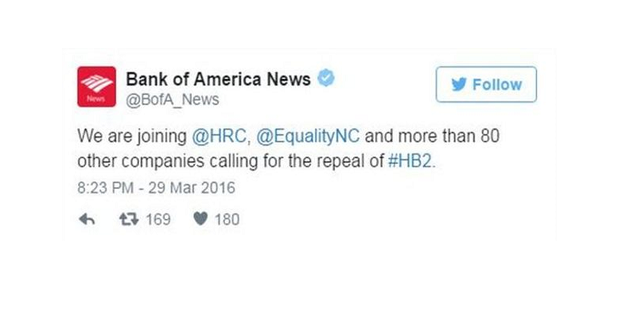
A few weeks ago, I was having a conversation with a friend of mine around what it means to have a position and take a stand, specifically as it relates to organizations engaging in community and political discourse. At the time, she was feeling a little discouraged after a recent community initiative she planned for her company received some push back. There was some indifference among leaders around the appropriateness of encouraging solidarity among employees and the company taking a specific stance.
This conversation got me to thinking about what it means for companies to “take a stand,” and why it is important to our communities, marketplaces, and ultimately, our organizations. If you’ve been following national human rights news, you may have heard some of the discourse around North Carolina’s controversial LGBT bill. A few months ago, Governor Pat McCrory signed a bill into law that would invalidate many of the legal protections that covered the rights of LGBT people, especially those of the transgender community.
It is my guess that the Governor didn’t expect what happened next. At the onset of the bill hitting the media waves and social media spheres, many organizations began to speak out and communicate their stances against the “anti-LGBT” legislation. More than 100 top leaders and executives from major companies, like Bank of America, Apple, and Google, verbally expressed their disapproval of the legislation and urged action on the part of North Carolina government. The NBA, who was set to host their 2017 All-Star Games in Charlotte, also communicated their stance against the law. Some cities and states have even banned government funded travel to North Carolina. Talk about taking a stand!
I have to admit, I was surprised yet enamored by so many organizations seeing it as their corporate social responsibility to be actively engaged in what they saw as an injustice and contradiction to their organizational values—even if it didn’t happen within their company walls. I believe the traditional school of thought around some companies’ community and political engagement has been to “play it safe,” and not take a stand, keep politics out of the workplace, and focus only on those things that happen within the organization. But, the rise of social media and its role in activism has made stances of indifference and silence a lot harder for companies.
Consumer care about how organizations are addressing social issues, and companies know that it only takes one tweet and 140 characters for their silence to compromise their brands. Not only that, if words like diversity, inclusion, community, fairness, and equality, can be found anywhere in your company values (as do many), then it really is a contradiction not to “take a stand” against those things that compromise them.
I don’t believe organizations were meant to be exempt in Mr. Elie Wiesel’s take on indifference, “The opposite of love is not hate, it’s indifference. The opposite of beauty is not ugliness, it’s indifference. The opposite of faith is not heresy, it’s indifference. And the opposite of life is not death, but indifference.”
From my point of view, there is danger in silence, especially when injustice and suffering are involved. Because even when we think we are not taking a stand, our silence suggests we really are–not just as individuals, but as organizations, too.


















